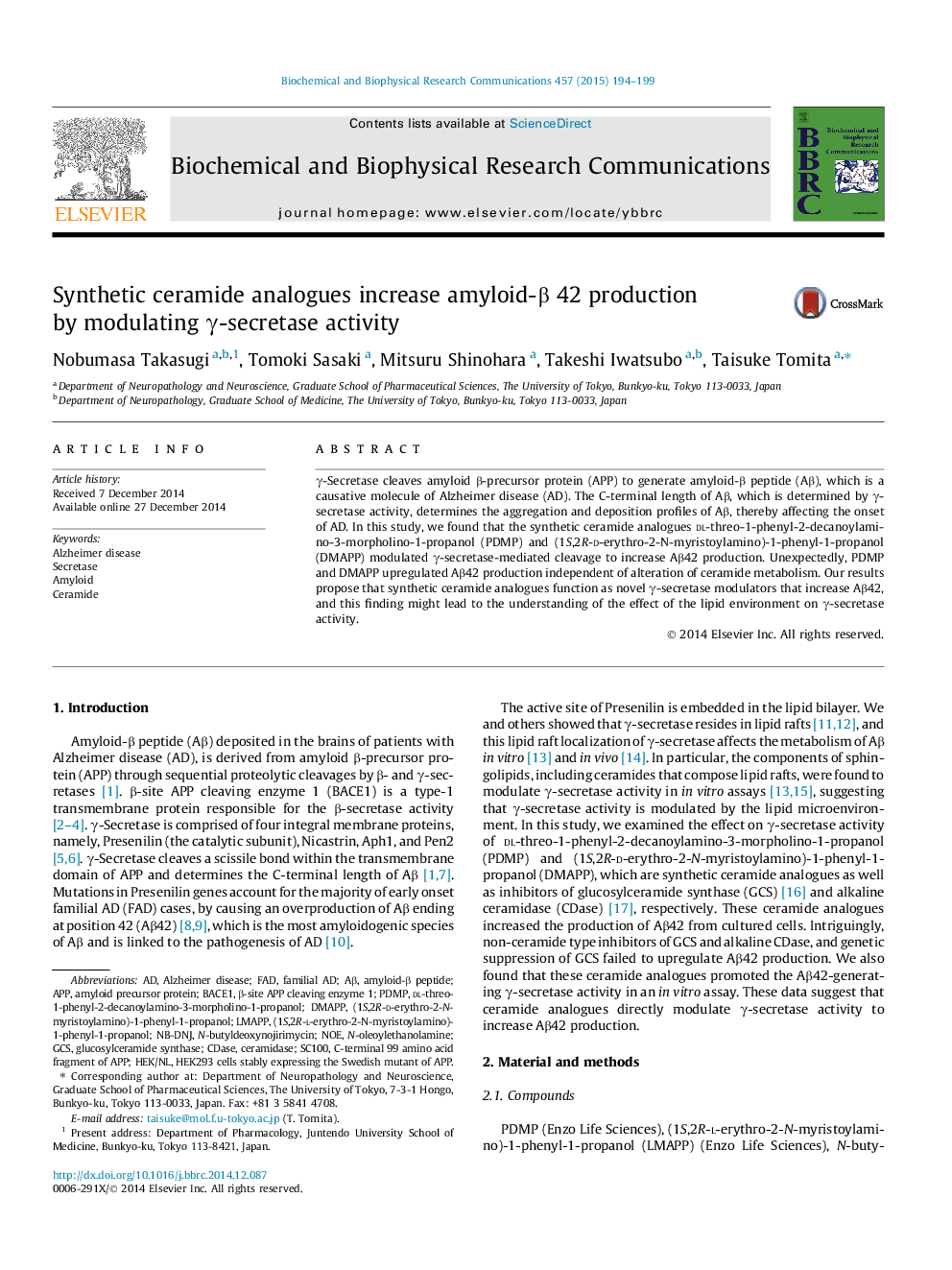| Article ID | Journal | Published Year | Pages | File Type |
|---|---|---|---|---|
| 10753357 | Biochemical and Biophysical Research Communications | 2015 | 6 Pages |
Abstract
γ-Secretase cleaves amyloid β-precursor protein (APP) to generate amyloid-β peptide (Aβ), which is a causative molecule of Alzheimer disease (AD). The C-terminal length of Aβ, which is determined by γ-secretase activity, determines the aggregation and deposition profiles of Aβ, thereby affecting the onset of AD. In this study, we found that the synthetic ceramide analogues dl-threo-1-phenyl-2-decanoylamino-3-morpholino-1-propanol (PDMP) and (1S,2R-d-erythro-2-N-myristoylamino)-1-phenyl-1-propanol (DMAPP) modulated γ-secretase-mediated cleavage to increase Aβ42 production. Unexpectedly, PDMP and DMAPP upregulated Aβ42 production independent of alteration of ceramide metabolism. Our results propose that synthetic ceramide analogues function as novel γ-secretase modulators that increase Aβ42, and this finding might lead to the understanding of the effect of the lipid environment on γ-secretase activity.
Keywords
Related Topics
Life Sciences
Biochemistry, Genetics and Molecular Biology
Biochemistry
Authors
Nobumasa Takasugi, Tomoki Sasaki, Mitsuru Shinohara, Takeshi Iwatsubo, Taisuke Tomita,
